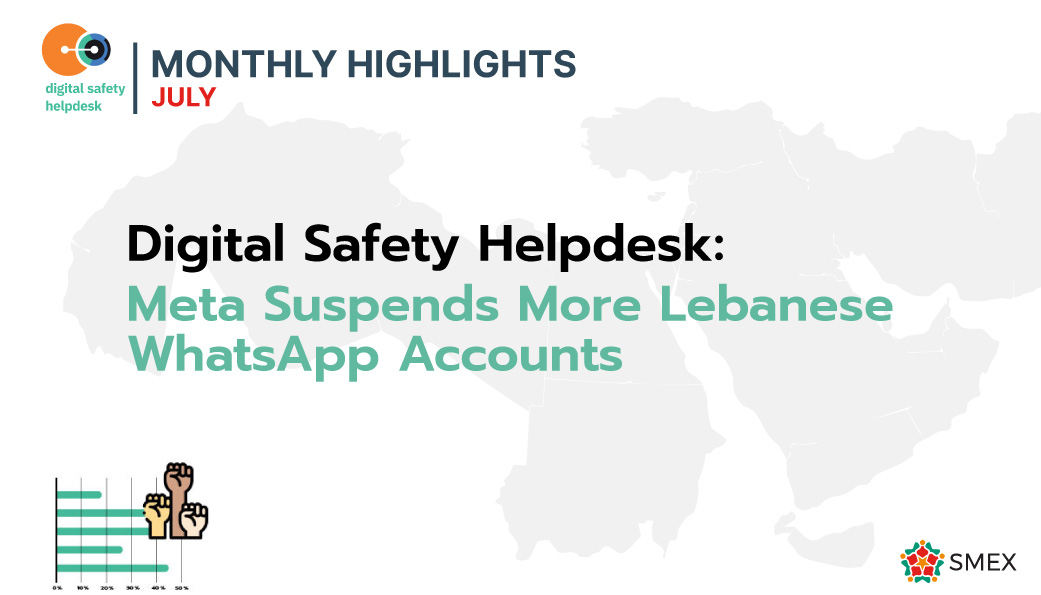Last June, the Digital Safety Helpdesk at SMEX handled a surge in account suspensions and activity restrictions, which comprised 38% of all cyber violence cases on the platform.
Amid current political and security tensions in the region following the Israeli aggression on Palestine and Lebanon, social media platforms have once again displayed bias against Palestinians. They have removed content in solidarity with Palestine and have banned some Arabic words without any logical justification.
Users have reported issues related to WhatsApp, primarily due to the suspension of accounts belonging to activists and journalists in southern Lebanon. This includes members of news groups reporting on events in Gaza and Lebanon, as well as individuals residing in south Lebanon.
The exact reason for this trend remains unclear, as none of these users violated Meta’s terms and guidelines. Meta, which owns Whatsapp, might be restricting freedom of expression and targeting individuals based on their opinions and locations.
“Digital civic spaces are shrinking across various platforms in Southwest Asia and North Africa, where they are being used to impose more repression, now happening openly,” a member of the Digital Safety Helpdesk team commented.
In Sudan, Facebook has shut down the accounts of media outlets and journalists reporting on the ongoing genocide, under the pretext of violating community guidelines.
Since April 2023, Sudan has been facing a deadly conflict between its army and the Rapid Support Forces, claiming the lives of 15,000 people and displacing approximately 10 million, according to United Nations reports.
The conflict has destroyed the country’s infrastructure, leaving almost three out of four health facilities out of service.
The Digital Safety Helpdesk handled 132 cases last June, 51 of which were from Gaza alone, largely due to Meta’s unfair content moderation policies.
The Helpdesk also noted a rise in gender-based online violence, with women accounting for 41% of the cases. These included instances of sexual blackmail, cyberbullying, hate speech, and other forms of digital violence.
Other cases reported to the Helpdesk from various countries in the region, including some European countries, included digital abuse, content censorship, and hacked accounts. The Helpdesk also received numerous requests for advice and support.
A journalist from Yemen contacted the Digital Safety Helpdesk for a comprehensive forensic analysis of his devices to ensure their security and detect any signs of hacking or espionage. The Helpdesk provided him with safety guidelines to prevent potential digital threats.
We have witnessed a notable increase in account hacking through social engineering techniques. On Facebook, attackers hacked accounts and posted inappropriate content that violated the platform’s guidelines, leading to the suspension of the targeted accounts.
The Digital Safety Helpdesk offers free support to activists, journalists, marginalized groups, and human rights defenders facing cybersecurity incidents and online threats in West Asia and North Africa.
If you are exposed to any digital attack, you can contact the platform all week long:
- Signal/WhatsApp: +961 81 633 133
- Email: helpdesk@smex.org
Stay safe!



